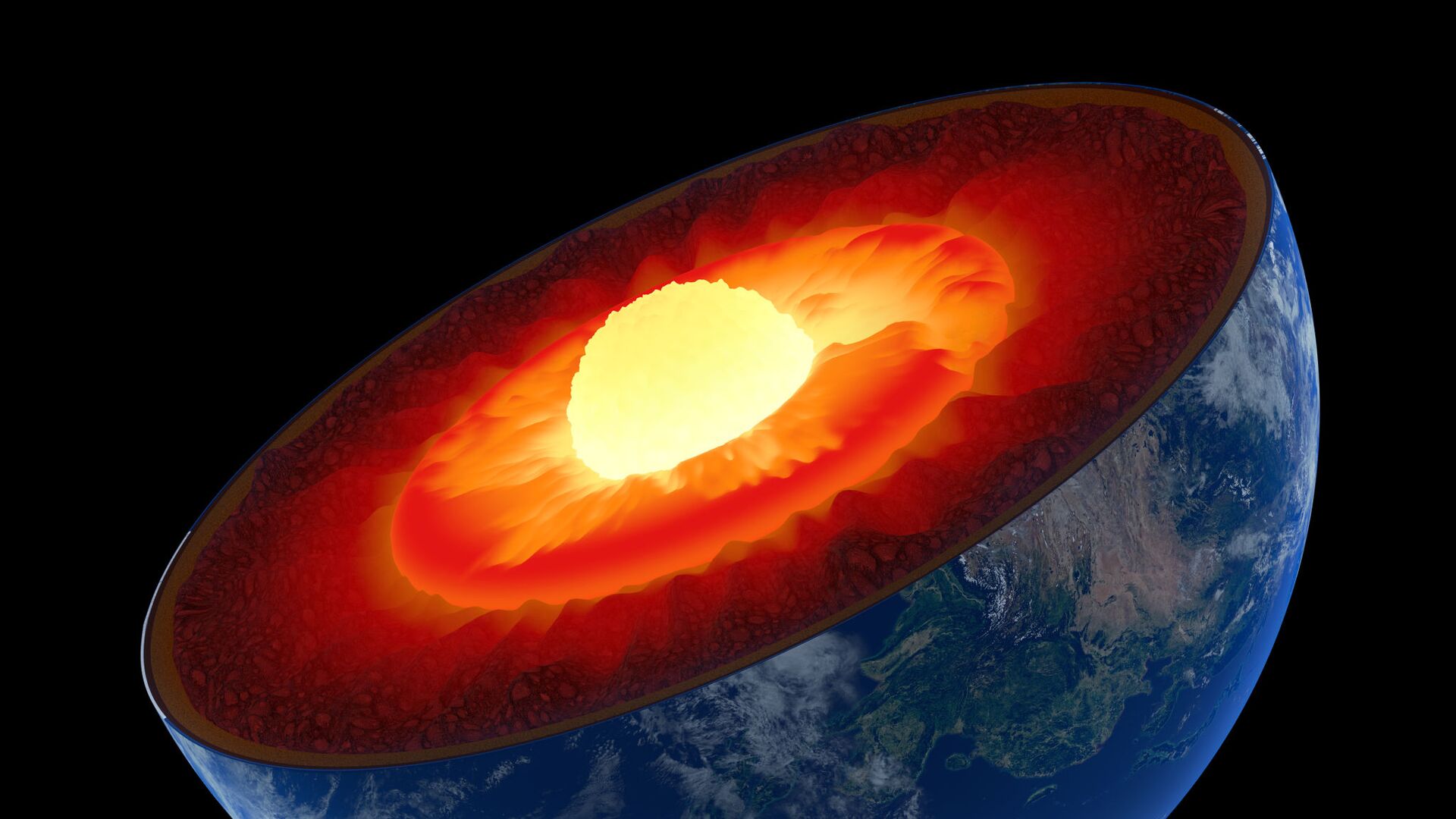https://sputnikglobe.com/20220312/new-study-sheds-light-on-two-mysterious-blobs-located-deep-inside-our-planet-1093809731.html
New Study Sheds Light on Two Mysterious Blobs Located Deep Inside Our Planet
New Study Sheds Light on Two Mysterious Blobs Located Deep Inside Our Planet
Sputnik International
Located in the lowermost mantle on opposite sides of the Earth, the Large Low-Shear-Velocity Provinces (LLSVPs) extend laterally for thousands of kilometres. Not much is known about these bizarre giants because scientists are not able to access them directly.
2022-03-12T14:43+0000
2022-03-12T14:43+0000
2022-08-06T13:32+0000
science & tech
earth mantle
study
arizona state university
https://cdn1.img.sputnikglobe.com/img/07e5/03/05/1082266219_0:267:2049:1419_1920x0_80_0_0_2547b0101dbe3e58b867d5e7d9d9b46f.jpg
Scientists from Arizona State University claim that their new study on the Large Low-Shear-Velocity Provinces (LLSVPs) sheds light on two mysterious blobs deep inside our planet. Using geodynamic modelling, the researchers were able to establish the LLSVPs' height and density.It turns out that the blob located beneath the African continent is around 1,000 kilometres higher than its sibling, which is located under the Pacific Ocean. Scientists say the difference in height could be explained by how dense the two giants are.The one under Africa appears to be of a lower density than the blob under the Pacific Ocean, which researchers say indicates that they have a different composition and evolution.The different composition of the LLVPs can be explained by their origin, although the scientific community has different opinions as to how the blobs came to be. According to one hypothesis, they are the remnants of a collision between Earth and the protoplanet Thea. According to another, the LLVPs were made from subducted tectonic plates that slip into the Earth’s mantle.The scientists say the results of their study provide new insights on the nature of the Earth's largest structures in the deep interior and their interaction with the surrounding mantle.
Sputnik International
feedback@sputniknews.com
+74956456601
MIA „Rossiya Segodnya“
2022
News
en_EN
Sputnik International
feedback@sputniknews.com
+74956456601
MIA „Rossiya Segodnya“
Sputnik International
feedback@sputniknews.com
+74956456601
MIA „Rossiya Segodnya“
large low-shear-velocity provinces, new study, sheds light on, two mysterious blobs,
large low-shear-velocity provinces, new study, sheds light on, two mysterious blobs,
New Study Sheds Light on Two Mysterious Blobs Located Deep Inside Our Planet
14:43 GMT 12.03.2022 (Updated: 13:32 GMT 06.08.2022) Located in the lowermost mantle on opposite sides of the Earth, the Large Low-Shear-Velocity Provinces (LLSVPs) extend laterally for thousands of kilometres. Not much is known about these bizarre giants because scientists are not able to access them directly.
Scientists from Arizona State University claim that their new study on
the Large Low-Shear-Velocity Provinces (LLSVPs) sheds light on two mysterious blobs deep inside our planet. Using geodynamic modelling, the researchers were able to establish the LLSVPs' height and density.
It turns out that the blob located beneath the African continent is around 1,000 kilometres higher than its sibling, which is located under the Pacific Ocean. Scientists say the difference in height could be explained by how dense the two giants are.
The one under Africa appears to be of a lower density than the blob under the Pacific Ocean, which researchers say indicates that they have a different composition and evolution.
“The Africa LLVP may have been rising in recent geological time. This may explain the elevating surface topography and intense volcanism in eastern Africa”, said Minming Li, co-author of the study.
The different composition of the LLVPs can be explained by their origin, although the scientific community has different opinions as to how the blobs came to be. According to one hypothesis, they are the remnants of a collision between Earth and the protoplanet Thea. According to another, the LLVPs were made from subducted tectonic plates that slip into the
Earth’s mantle.
The scientists say the results of their study provide new insights on the nature of the Earth's largest structures in the deep interior and their interaction with the surrounding mantle.
"This work has far-reaching implications for scientists trying to understand the present-day status and the evolution of the deep mantle structure, and the nature of mantle convection", said geologist Qian Yuan.

